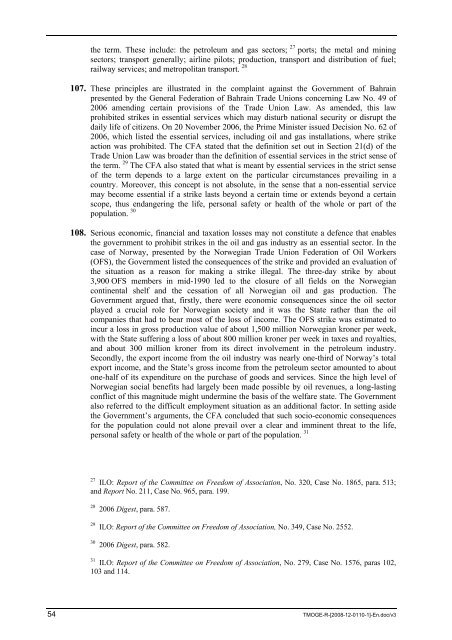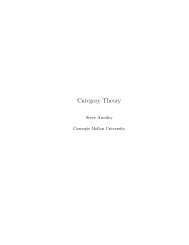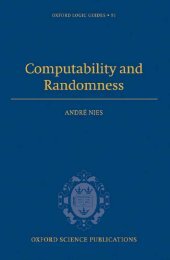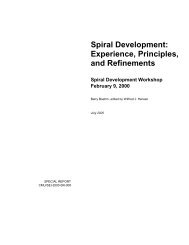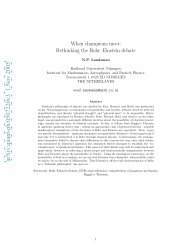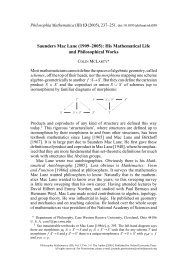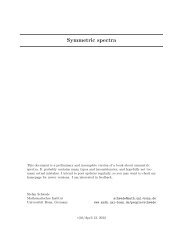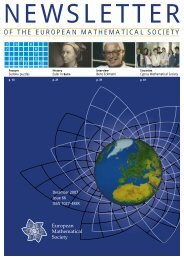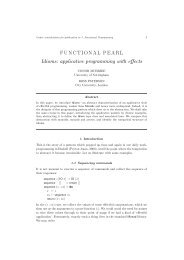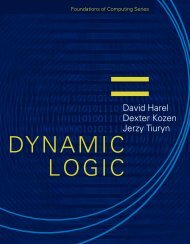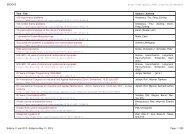wcms_161662
wcms_161662
wcms_161662
You also want an ePaper? Increase the reach of your titles
YUMPU automatically turns print PDFs into web optimized ePapers that Google loves.
the term. These include: the petroleum and gas sectors; 27 ports; the metal and mining<br />
sectors; transport generally; airline pilots; production, transport and distribution of fuel;<br />
railway services; and metropolitan transport. 28<br />
107. These principles are illustrated in the complaint against the Government of Bahrain<br />
presented by the General Federation of Bahrain Trade Unions concerning Law No. 49 of<br />
2006 amending certain provisions of the Trade Union Law. As amended, this law<br />
prohibited strikes in essential services which may disturb national security or disrupt the<br />
daily life of citizens. On 20 November 2006, the Prime Minister issued Decision No. 62 of<br />
2006, which listed the essential services, including oil and gas installations, where strike<br />
action was prohibited. The CFA stated that the definition set out in Section 21(d) of the<br />
Trade Union Law was broader than the definition of essential services in the strict sense of<br />
the term. 29 The CFA also stated that what is meant by essential services in the strict sense<br />
of the term depends to a large extent on the particular circumstances prevailing in a<br />
country. Moreover, this concept is not absolute, in the sense that a non-essential service<br />
may become essential if a strike lasts beyond a certain time or extends beyond a certain<br />
scope, thus endangering the life, personal safety or health of the whole or part of the<br />
population. 30<br />
108. Serious economic, financial and taxation losses may not constitute a defence that enables<br />
the government to prohibit strikes in the oil and gas industry as an essential sector. In the<br />
case of Norway, presented by the Norwegian Trade Union Federation of Oil Workers<br />
(OFS), the Government listed the consequences of the strike and provided an evaluation of<br />
the situation as a reason for making a strike illegal. The three-day strike by about<br />
3,900 OFS members in mid-1990 led to the closure of all fields on the Norwegian<br />
continental shelf and the cessation of all Norwegian oil and gas production. The<br />
Government argued that, firstly, there were economic consequences since the oil sector<br />
played a crucial role for Norwegian society and it was the State rather than the oil<br />
companies that had to bear most of the loss of income. The OFS strike was estimated to<br />
incur a loss in gross production value of about 1,500 million Norwegian kroner per week,<br />
with the State suffering a loss of about 800 million kroner per week in taxes and royalties,<br />
and about 300 million kroner from its direct involvement in the petroleum industry.<br />
Secondly, the export income from the oil industry was nearly one-third of Norway’s total<br />
export income, and the State’s gross income from the petroleum sector amounted to about<br />
one-half of its expenditure on the purchase of goods and services. Since the high level of<br />
Norwegian social benefits had largely been made possible by oil revenues, a long-lasting<br />
conflict of this magnitude might undermine the basis of the welfare state. The Government<br />
also referred to the difficult employment situation as an additional factor. In setting aside<br />
the Government’s arguments, the CFA concluded that such socio-economic consequences<br />
for the population could not alone prevail over a clear and imminent threat to the life,<br />
personal safety or health of the whole or part of the population. 31<br />
27 ILO: Report of the Committee on Freedom of Association, No. 320, Case No. 1865, para. 513;<br />
and Report No. 211, Case No. 965, para. 199.<br />
28 2006 Digest, para. 587.<br />
29 ILO: Report of the Committee on Freedom of Association, No. 349, Case No. 2552.<br />
30 2006 Digest, para. 582.<br />
31<br />
ILO: Report of the Committee on Freedom of Association, No. 279, Case No. 1576, paras 102,<br />
103 and 114.<br />
54 TMOGE-R-[2008-12-0110-1]-En.doc/v3


